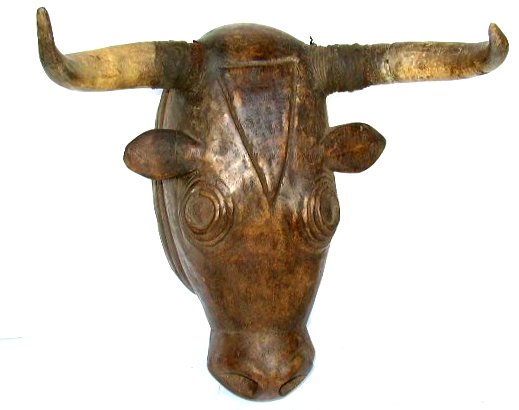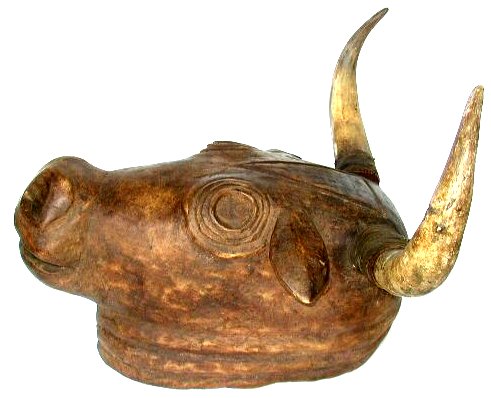

Bijago (Bidjogo, Bidjugo, Bidyogo, Bijogo, Bijugo, Bissago),
Wild bull (dugn’be) mask. Over 9,000
Bijago people inhabit the Bissagos islands. The economy of the archipelago is based on the
cultivation of rice, on palm oil, and on fishing. The society is highly structured by
means of institutions such as the matrilineal clans, the council of elders, seven age
classes and the priestess. The majority of the Bijago practice animism. The women play a
major role in social life. The masks represent, in a realistic manner, marine animals,
hippopotamuses, sharks, or, like this one, wild bull. The masks are worn either on top of
the head or in front of it. The dancers imitate these dangerous animals that symbolize
beings that are still untamed, as they have not been initiated. The masks are danced by
boys and young men during the ceremonies that precede and follow the phases of initiation.
The heaviest masks are worn by the age group that is not yet considered
adult. Besides ritual
occasions, nowadays they also appear in secular contexts, on days that commemorate
historical events, and when important people visit.
Material: wood, horns, tissue
Size: 18½”x 18½”x 16½”
